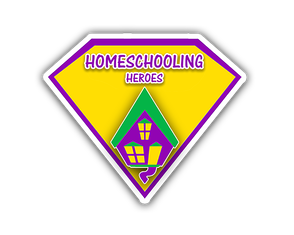How to Teach at Home |
|
by Christina Yeager
Homeschooling can be intimidating for the first time. There’s a lot of factors to consider. A lot of planning and thought that parents and guardians have to consider. One thing that can help ease that pressure is knowing the laws and regulations for homeschooling in different states. Let’s take a look at some of the laws and regulations for homeschooling Virginia.
Each state is the U.S. has a very specific set of regulations for homeschooling. If you are thinking about teaching your child at home, you'll need to know the ins and outs of what needs to be done beforehand and during. In this series, Homeschooling Regulations by State, we'll explore information to help with the decision, what to do to get started and what to do correctly to continue.
The regulations, laws and suggestions in this post may not reflect the needs for your particular situation. Not all apply to each individual family. To learn more about the laws and regulations in this state on homeschooling, click the link at the end of the post! This will direct you to the states’ Board of Education or government education site. Compulsory School Age One of the first laws for homeschooling in Virginia is its compulsory attendance law. The law states that all students between the ages of five and eighteen must be involved in school. It’s also legal to use home education to meet the compulsory requirements. Necessary Paperwork In regards to paperwork, Virginia requires a notice of intent to instruct a child or children from home. You have to submit an NOI every year by August 15th. The notice of intent (NOI) can also be used to legally take your student out of public school and transition to homeschool. You just fill out the NOI then contact the school for anymore specific paperwork that needs to be filled out. Compliance The parent of the child must also have at least a high school diploma or higher or a teacher certification. Either one is legal. The student must also be enrolled in a correspondence distance learning program, however, the student doesn’t have to take this course if the parent is able to give adequate education to the student. That mainly depends on the teaching style of the parent. Some homeschooling parents prefer to provide all of the education while others will do that while at the same time, put their child in some type of program under religious exemption or with a certified tutor. Curriculum The parent must also have a list of subjects that they will study with their child throughout the year. This basically means that you have to have an outline of what you’ll study with your child during the school year. Virginia also requires you to submit evidence of academic progress every year by August 1st.
For more detailed information on enrolling and instructing your child in the State of Virginia, visit the Virginia Department of Education online.
Are you a homeschooler (new or veteran) seeking to share insight? Read our guidelines and then reach out introducing yourself to obtain blogging credentials! And if you're a homeschool parent, be sure to follow the Homeschooling Heroes page on Facebook for tons of resources and insight, and join the Unschool Homeschool group to expand your horizons as to what homeschooling is/can be. And finally, if you're looking for activities to join, we have a group with New Orleans-based activities, which will be expanding to an area near you - so join our group! And be excited about that, because we offer tons of exceptional educational and extracurricular activities for homeschoolers and parents, and can't wait to include you.
|
Categories
All
Archives
July 2020
|
|
|

 RSS Feed
RSS Feed


